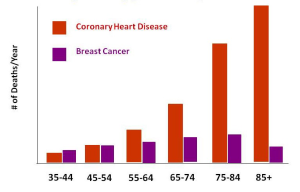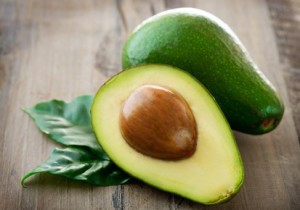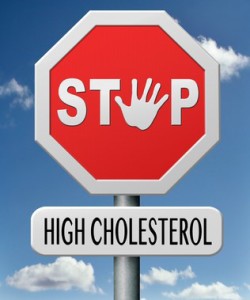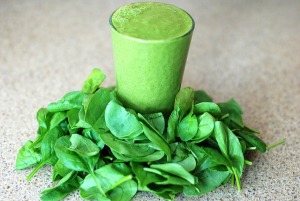Do Foods Make Kids Fidget?
Author: Dr. Stephen Chaney
 When I was a kid we didn’t have all of these fancy words like hyperactivity, ADD and ADHD. If a kid had trouble sitting still and trouble focusing on the task at hand, they were just considered “fidgety”. So, what causes ADHD in kids?
When I was a kid we didn’t have all of these fancy words like hyperactivity, ADD and ADHD. If a kid had trouble sitting still and trouble focusing on the task at hand, they were just considered “fidgety”. So, what causes ADHD in kids?
Now that I’ve dated myself once again, let’s get to the real topic which is: “Can the foods that your kids eat have any relationship to ADD and ADHD symptoms?”
To put things into perspective, the CDC just announced that 11% of all school age children in the US have been diagnosed with ADHD. That is a 41% increase in the last decade alone. I am not going to discuss the controversy about why the incidence of ADHD is rising so rapidly in this country. That is another story for another time.
My concern is that two thirds of those children are being given stimulant medications like Ritalin and Adderall. While those medications can help reduce the symptoms, they can also cause serious side effects such as addiction, anxiety and psychosis.
So it might be time to stop and ask, is there a better way? Could the foods those children are eating cause ADHD? If so, could something as simple as changing their diet control the symptoms of ADHD without any side effects?
I’ve talked about the effect of food additives, Do Artificial Colors Cause Hyperactivity , and the sugar content of the diet on hyperactivity in previous issues of my “Health Tips from the Professor”.
The question that I’m posing today is whether sensitivities to foods that we would otherwise consider to be healthy could also trigger ADHD symptoms?
Could The Foods Our Children Eat Cause ADHD?
Could food be what causes ADHD in kids? Many clinicians have long felt that food sensitivities could be associated with ADHD symptoms because many of the children that they were treating for ADHD also had food sensitivities that showed up as eczema, asthma and gastrointestinal problems. But no definitive clinical studies had been performed in this area, so the idea that food sensitivities might cause ADHD symptoms remained an open question.
However, a major clinical study called The Impact of Nutrition on Children with ADHD was recently performed that suggests the answer to this question is a resounding YES – food sensitivities can cause ADHD symptoms (Pelesser et al, Lancet, 377: 494-503, 2011).
100 children from the Netherlands and Belgium with a definitive diagnosis of ADHD were enrolled in the study. The age of the children was 4 to 8 years old because it is easiest to control the food intake of children in that age group.
At the beginning of the study every child was given IgG blood tests to identify food sensitivities. During the first 5 weeks of the program the children were divided into two groups.
 One group was put on a restricted elimination diet consisting of rice, meats, vegetables, pears and water for 5 weeks (An elimination diet is the “gold standard” for evaluating food sensitivities because it eliminates almost every food known to cause sensitivity from the diet).
One group was put on a restricted elimination diet consisting of rice, meats, vegetables, pears and water for 5 weeks (An elimination diet is the “gold standard” for evaluating food sensitivities because it eliminates almost every food known to cause sensitivity from the diet).
- The second group was put on a “healthy diet” – one which met current nutritional guidelines, but did not eliminate any food or food group from the diet.
At the end of this 5-week period all of the children were evaluated for ADHD symptoms in a blinded fashion by a pediatrician specializing in diagnosing and treating ADHD.
- An astonishing 78% of the children on the elimination diet had a reduction in their ADHD symptoms!
- Those on the “healthy diet” showed no significant improvement in symptoms.
Can IgG Tests Identify Children Who Will Benefit From Changing Their Diet?
The first phase of the study (described above) was followed by a second phase in which restricted foods were added back to the diet of those children who had responded positively to the elimination diet.
But the foods were not added back randomly. Each child was exposed for two weeks to foods with a high IgG response in their initial screen and for two weeks to foods with a low IgG response in their initial screen. In others words the foods added back were different for each child and were based on their individual IgG results.
This phase of the trial was done in a crossover fashion – meaning that half of the children received low IgG foods during the first two weeks followed by high IgG foods during the second two weeks – and for the other half of the children the order was reversed.
And this phase of the study was also done in a double blind fashion – meaning that neither the children nor the evaluators knew whether they were receiving low IgG foods or high IgG foods during the test period.
The results of this phase of the study were also very interesting:
- There was a substantial worsening of ADHD symptoms in 63% of the children when restricted foods were added back to the diet
- AND – it didn’t matter whether the foods were low IgG foods or high IgG foods.
The authors’ conclusions were simple:
- Food sensitivities make a substantial contribution to ADHD symptoms in children.
- Don’t waste your money on the IgG tests (They have been controversial for some time).
The Bottom Line
What is the significance of this study if you have a child with ADHD? According to a recent study:
- Food sensitivities make a substantial contribution to ADHD symptoms in children.
- Don’t waste your money on the IgG tests (They have been controversial for some time).
- The best way to see if foods trigger your child’s ADHD symptoms is to put them on an elimination diet, and if they show an improvement on the elimination diet, add the restricted foods back one or two at a time so you can identify the ones that should be avoided in the future.
Some of you might be saying that sounds difficult (it is), so why bother?
- The answer is that 11% of school age children in this country are diagnosed with ADD or ADHD – and almost all of them are treated with drugs that can have serious side effects.
- Using an elimination diet to find out whether your child’s ADHD is triggered by food sensitivities and then changing their diet has absolutely no side effects!
Some of you might be asking, “Are there any easier drug-free approaches that one could try, or is there any natural approach that might work for the 22% of children who don’t respond to the elimination diet?”
The answer to both questions is yes.
- Simply eliminating food additives, junk foods and/or sugary foods from the diet helps reduce ADHD symptoms in many children.
- You also shouldn’t neglect the role that supplementation can play in laying a strong nutritional foundation for your child. I recommend a good children’s multivitamin to make sure that they are getting the nutrients they need, a protein supplement to help prevent blood sugar swings, a good omega-3 (preferably DHA) supplement to support brain health and a supplemental source of friendly bacteria to promote gut health.
But if all else fails I would recommend trying an elimination diet to identify problem foods and then eliminating those foods from your child’s diet before putting them on drugs.
These statements have not been evaluated by the Food and Drug Administration. This information is not intended to diagnose, treat, cure or prevent any disease.























